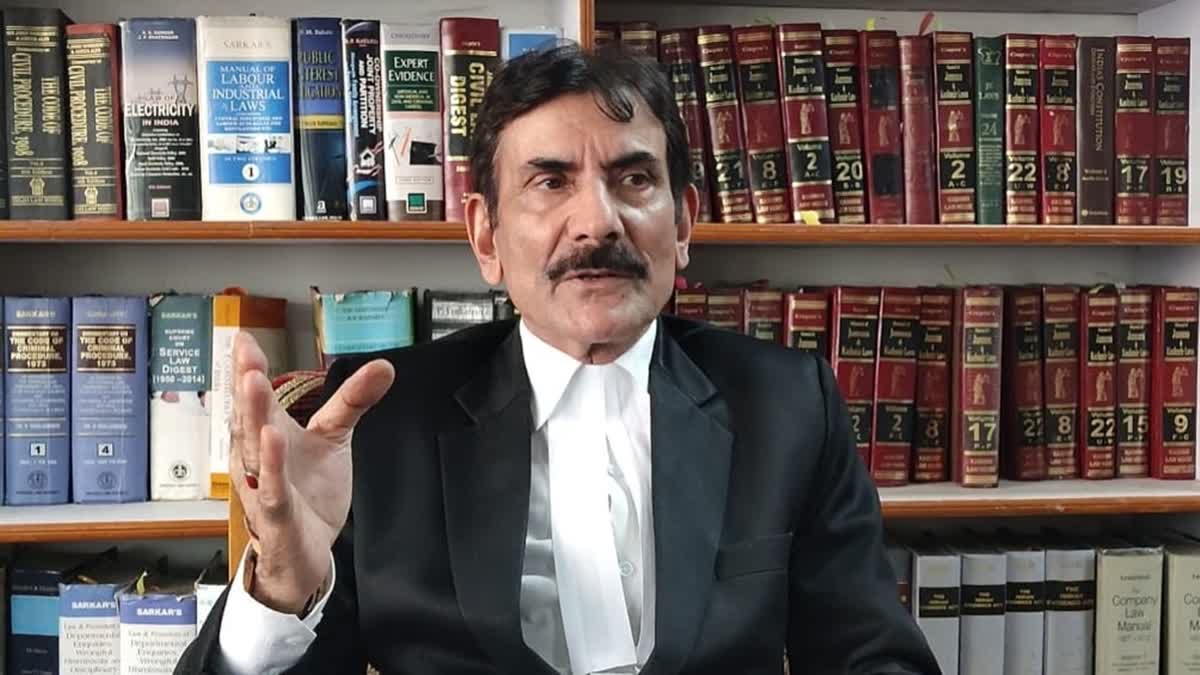Srinagar (Jammu and Kashmir): The Supreme Court hearing scheduled today on a batch of pleas challenging the abrogation of Article 370, which gave special status to the erstwhile Jammu and Kashmir state has “turned the clock back”, a senior advocate has said. In a special conversation with ETV Bharat, Syed Riyaz Khawar, Senior Advocate at the High Court of Jammu and Kashmir and Ladakh said, “The most positive aspect in this is that the constitutional bench of the Supreme Court has started hearing on a daily basis.
All the judges of this bench are senior most of the Supreme Court. This is a welcome development”. Khawar was referring to the SC's constitutional bench beginning the hearing on the batch of petitions challenging the abrogation of Article 370. The bench of the Supreme Court is presided over by Chief Justice Dhananjaya Y. Chanderchud while Justices Sanjay Kishan Koul;, Sanjeev Khanna, B R Gawai and Suriya Kant are also included in this bench.
The National Conference, Bar Associations are also parties to the petitions. Advocate Khawar also referred to the Kiswanand Bharati case of 1973 which was heard by a 13-judge bench of the Supreme Court of India, making it the largest bench in Indian legal history. The court, in a historic 7:6 majority decision, introduced the doctrine of the basic structure of the Constitution, Khawar said.
Also read: SC commences hearing on batch of petitions challenging abrogation of Article 370
“The bench had then said that some of the basic features of the constitution, such as democracy, secularism, federalism, and the rule of law, cannot be amended by the parliament. The court also said that the power of judicial review is an integral part of the basic structure of the constitution and it cannot be taken away by the Parliament through constitutional amendment.
The constitution cannot be rewritten, it can be amended but not everywhere," Khawar added. Khawar said that Article 370 could have only been abrogated by the Jammu and Kashmir constituent assembly. "As per law, the Constituent Assembly should send a recommendation to the President regarding the abrogation of Article 370, after which the President could have abrogated it, but they did not adopt that method because the Constituent Assembly had ended here,” he said.
On August 5, 2019, the central government revoked the special status granted to Jammu and Kashmir under Article 370 and divided the state into two centrally administered territories. While the government termed its decision as historic and claimed to be the guarantor of development and prosperity in Jammu and Kashmir, the political parties of the valley termed the move as unconstitutional and illegal.



